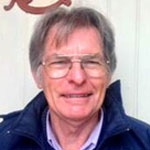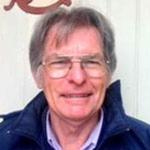
It feels bad to be disliked, but this exactly what Christians are largely lacking today. I once ran into an old Christian friend who I hadn’t seen for some years. He soon told me he was suffering grief from being betrayed by a couple of co-workers who had been as close to him as his own children.
Then the Lord gave me a word for him, not an easy word but a necessary one. “If Jesus needed a Judas to grow in grace, so have you.” This thinking is part of the New Testament testimony of what it means to follow Christ.
Assumed
When Jesus said, “a person's enemies will be those of his own household…. you will be hated by all nations for my name's sake” (Matthew chapter 10 verse 36, chapter 24 verse 9), he simply assumes hostility will follow discipleship. Nothing could be clearer than Paul’s statement, “all who desire to live a godly life in Christ Jesus will be persecuted” (2 Timothy chapter 3 verse 12). If we do not have enemies, that is, men and women who don’t like us because of our faith, we are not serious about following Jesus.
Friendship with the world is not an option for those who seriously want to be friends with God (James chapter 4 verse 4). Peace with the world means we are not walking as “children of light” (1 Thessalonians chapter 5 verse 5); for light always incites darkness to react against it through the power of shame.
Provoked
Shame is a universal condition and it’s a sense of the loss of the glory of God (Romans chapter 3 verse 23); it’s the very character of shame to incite hostility towards whoever exposes it. Lost people are running away from God and holy Christian living exposes their darkness so they “hate the light” of Christ they see in us (John chapter 3 verse 20). Since the values of mainstream society are always incompatible with the life of Christ we must never identify with the majority.
Jesus put it like this; “If you were of the world, the world would love you as its own; but because you are not of the world, but I chose you out of the world, therefore the world hates you.” (John chapter 15 verse 19). No one enjoys being hated, but to be mature disciples we must accept suffering follows godliness. Only being despised and rejected provides the conditions for the full expression of God’s love.
Needed
Christ commanded his disciples; “Love your enemies and pray for those who persecute you, 45 so that you may be sons of your Father who is in heaven.” (Matthew chapter 5 verse 45). As the true Son of God he imaged such perfect love of the Father by praying for his enemies on the cross; ““Father, forgive them, for they know not what they do.”” (Luke chapter 23 verse 34).
This unique and absolute expression of God’s love through a human life had a profound effect on those who heard him. A hardened thief wanted to be with Jesus in the afterlife and a tough centurion declared him to be “Son of God” (Luke chapter 23 verse 42; Mark chapter 15 verse 39).
When love offers its haters mercy and forgiveness the ultimate power behind the universe is revealed. A power which alone can turn enemies into friends (Romans chapter 5 verse 10). This makes being hated for Christ’s sake eternally worthwhile.
Conclusion
In contemporary postmodern Western culture the worst thing you can do is shame someone. The LGBT+ community, feminists, cultural Marxists, militant atheists and many ordinary pleasure-seeking Aussies just want to get on with enjoying their lives and resent anyone objecting to their values and lifestyle. Christianity, once society’s “thought policeman”, is now seen as hypocritical and stripped of moral authority.
Whilst it’s wrong to seek to shame others through condemnation, it’s godly to elicit shame amongst worldly people by living a transparently holy Christlike life. When anger comes back at us it’s a heaven-sent opportunity to love and forgive enemies, and in the process reveal that the power of God’s love is greater than the seemingly unconquerable foe which confronts us all, death.
Only when the Church has enemies it freely forgives can sinners really see a love that raised Jesus from the dead.
 The Rev. Dr John Yates is an Anglican minister in Perth and has 5 children and 7 grandchildren. He spends time in praying, mentoring and writing.
The Rev. Dr John Yates is an Anglican minister in Perth and has 5 children and 7 grandchildren. He spends time in praying, mentoring and writing.
John Yates’s previous articles may be viewed at http://www.pressserviceinternational.org/john-yates.html

The Rev. Dr John Yates is an Anglican minister in Perth and has 5 children and 7 grandchildren. He spends time in praying, mentoring and writing.John Yates’s previous articles may be viewed athttp://www.pressserviceinternational.org/john-yates.html